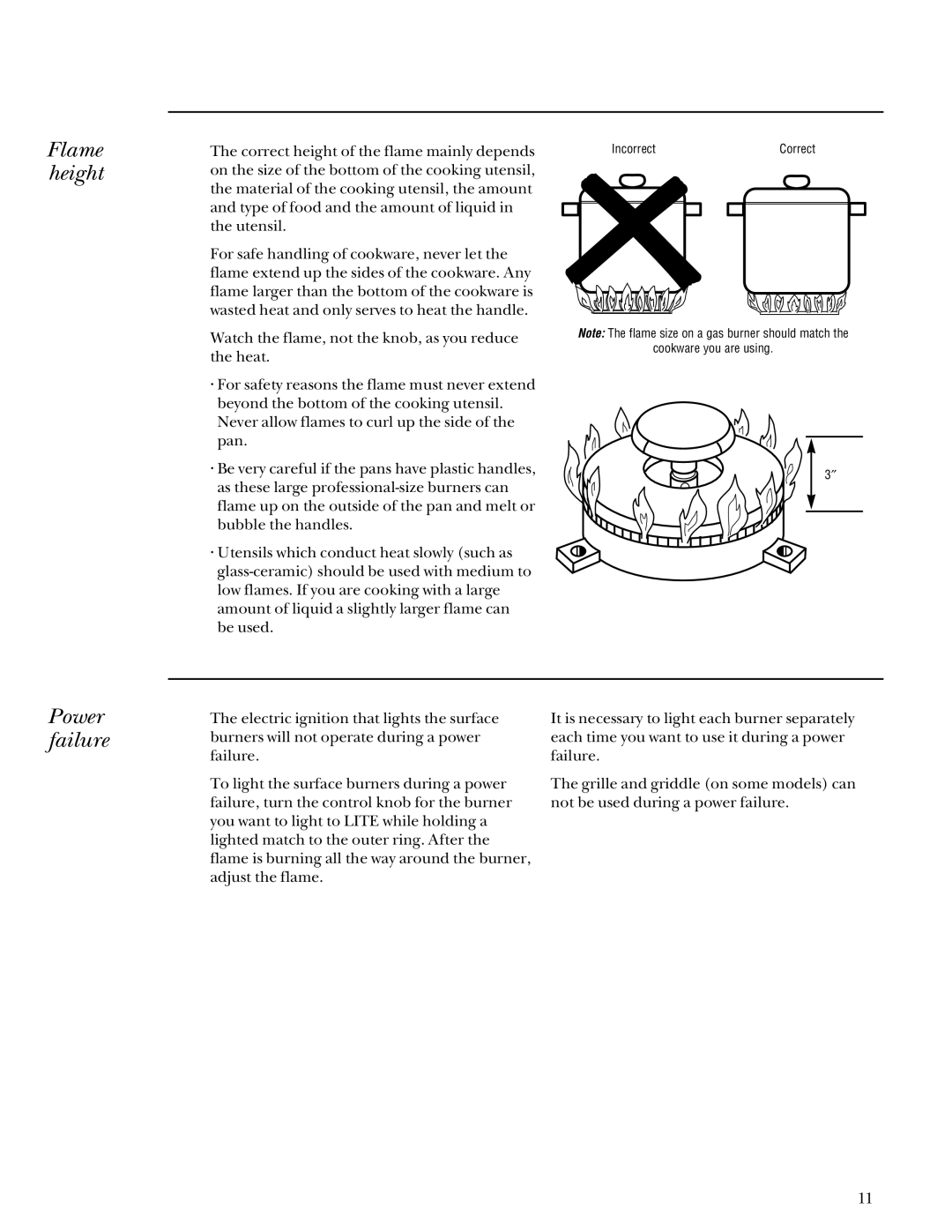
Flame height
The correct height of the flame mainly depends on the size of the bottom of the cooking utensil, the material of the cooking utensil, the amount and type of food and the amount of liquid in the utensil.
For safe handling of cookware, never let the flame extend up the sides of the cookware. Any flame larger than the bottom of the cookware is wasted heat and only serves to heat the handle.
Watch the flame, not the knob, as you reduce the heat.
•For safety reasons the flame must never extend beyond the bottom of the cooking utensil. Never allow flames to curl up the side of the pan.
•Be very careful if the pans have plastic handles, as these large
•Utensils which conduct heat slowly (such as
IncorrectCorrect
Note: The flame size on a gas burner should match the
cookware you are using.
3″
Power failure
The electric ignition that lights the surface burners will not operate during a power failure.
To light the surface burners during a power failure, turn the control knob for the burner you want to light to LITE while holding a lighted match to the outer ring. After the flame is burning all the way around the burner, adjust the flame.
It is necessary to light each burner separately each time you want to use it during a power failure.
The grille and griddle (on some models) can not be used during a power failure.
11
